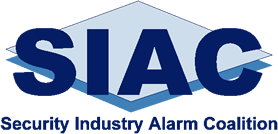Model Alarm Ordinance
Over the past TWENTY years the alarm industry has worked closely with agencies such as the IACP – International Association of Chiefs of Police and NSA – National Sheriffs Association, to develop and refine successful elements for a solid alarm ordinance that will reduce alarm dispatches and in most cases allow for cost recovery. These jointly developed “Best Practices” have been incorporated into the Model Ordinance below. We estimate that over a thousand law enforcement agencies have used nearly all of this model. In recent years we have found most law enforcement agencies including the IACP/SACOP Chapters prefer the 2018 UPDATED (5 page) version. PLEASE NOTE: The term ECV – Enhanced Call Verification definition has been changed to ECC – Enhanced Call Confirmation, both mean “2-calls” are made prior to requesting a dispatch, with ECC being the current terminology.
Model Ordinance – Best Practices
Numerous joint studies have been conducted on Alarm Management to determine the most effective measures to reduce alarm dispatches. When considering the balance between community expectations, overall public safety, limited resources and IACP recommended initiatives such as Community Policing, the IACP-PSLC has determined the following elements/best practices should be included in any Alarm Management Program, by ordinance. The Model Ordinance now utilized by fourteen SACOP Chapters and adopted by hundreds of municipalities use the following best practices. Chiefs may choose to eliminate some of these practices from the model, however, effectiveness/results will be diminished. The agency must strictly enforce the ordinance and it cannot have exceptions for municipal buildings, schools or other high resource use entities.
These best practices jointly supported by the IACP & the Alarm Industry are:
- ECC – Enhanced Call Confirmation (previously called ECV – Enhanced Call Verification), commonly referred to as two-call confirmation. Whether by ordinance or policy, a requirement for alarm monitoring centers to make two calls to two different numbers (one typically a cell phone) prior to calling the PSAP in an effort to determine the cause of the alarm and whether or not a dispatch is required. This practice was endorsed by the IACP general membership via resolution in 2002.
2. Requiring Alarm Permits w/fees – Registration of these systems is critical for the effective management of alarm programs. By recording system owner information you have responsible party documentation for fines/renewals/policy or ordinance change notifications. Nominal fees for registration routinely cover costs associated with www.siacinc.org 972.377.9401 administration of these programs. Special Note: We DO NOT recommend a “No permit, No Response” provision in an ordinance. As a public safety issue, all alarms calls should receive law enforcement response, unless previously suspended by ordinance provision. You can always cite a person for not having a permit on file after the response.
3. Free responses/Fines – Setting reasonable fines for alarm dispatches can be a significant deterrent to the occasional offender. Allowing a maximum of two free responses before incurring fines is advisable. When combined with restricting response to abusers, a reasonable fine structure will accomplish all reduction goals and allow for higher collection rates. Greater reductions will occur when setting free responses to one or zero. Local politics will govern this threshold.
4. Ceasing Response to Chronic Abusers – Law enforcement should stop responding to chronic abusers. It has been determined that many will just “write checks” to cover police response (these typically are most of your worst offenders). An agency should establish a response cut-off point at 3, 5 or less, whatever may be politically supported. Proper notice should be sent to the owner/premise with a right to appeal and/or take corrective action for reinstatement. Note: 85% of users have NO dispatches per year; the next 8% will only have one and less than 0.5% of the permit holders will ever lose response.
5. Accepting Cancellations – It has been determined that there is no practical value in continuing on an alarm dispatch if the party that originally requested the dispatch determines through customer contact or verified electronic means that the response is unnecessary and not needed. If the call is cancelled prior to law enforcement arriving at the location, the event should not be classified as a “false alarm” for the purpose of an alarm response count or fine.
